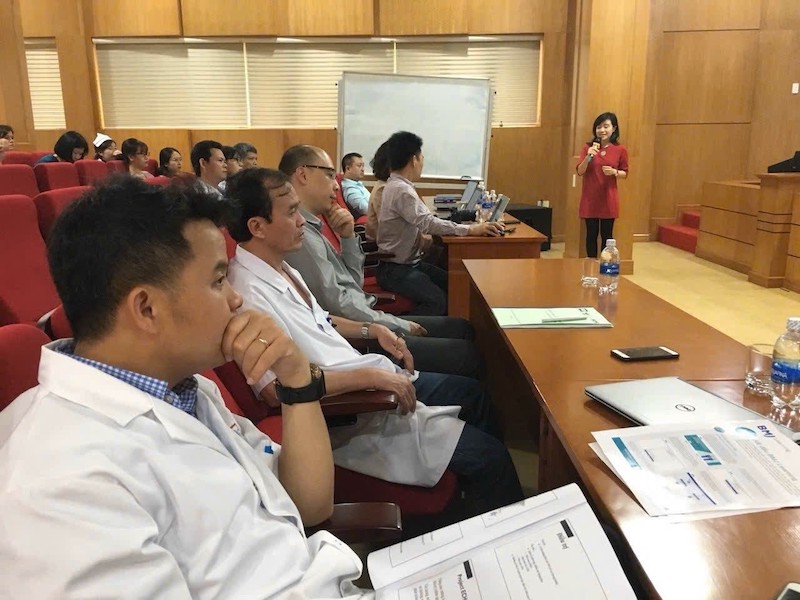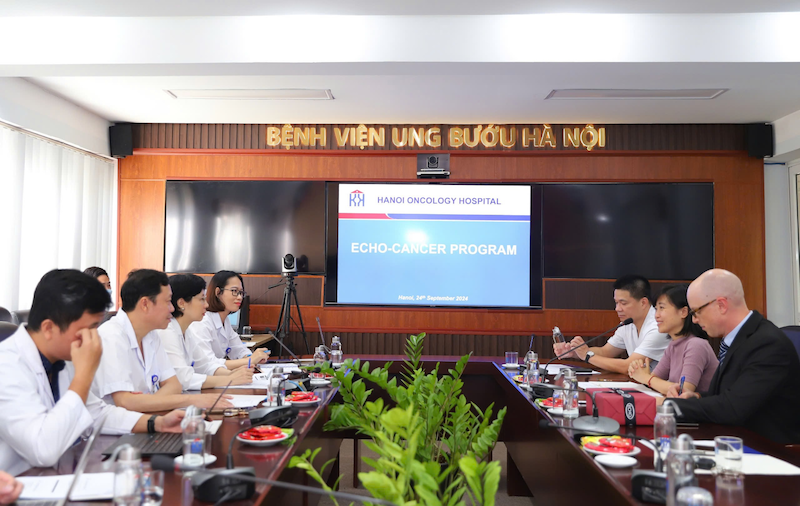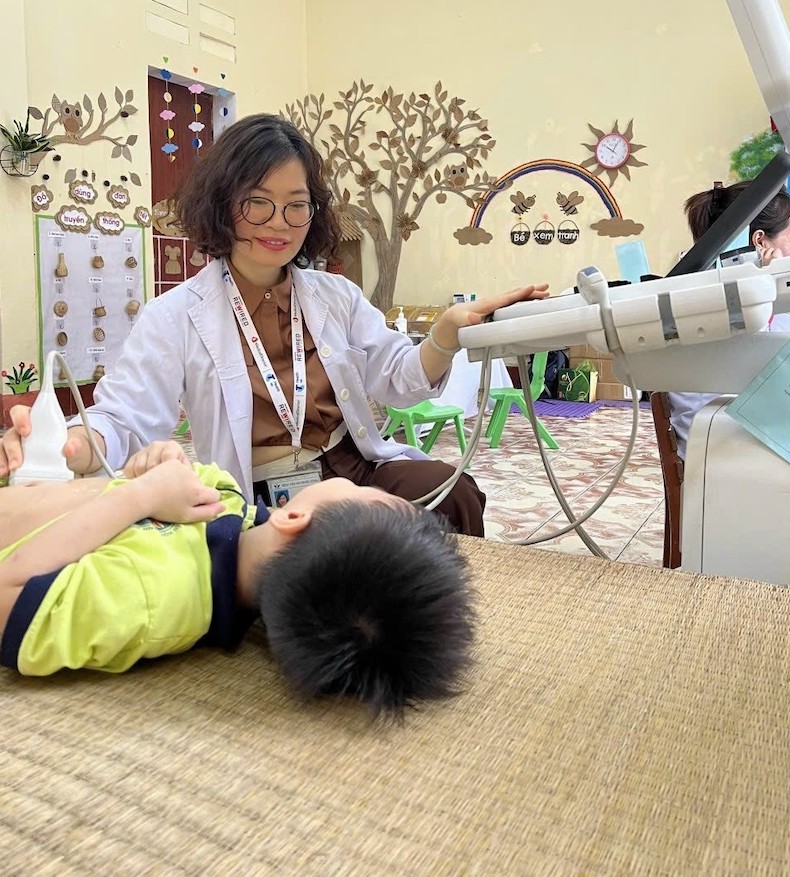At the Vietnam National Children’s Hospital, Dr. Le Hong Nhung, vice-director of the center of pediatric health care directives and lead ECHO facilitator, has helped build an ECHO pediatrics and cancer network across the country.
In Vietnam, and more broadly the Asia-Pacific region, where female leaders are less common than male leaders, Dr. Nhung believes that the mentorship and training she received through the ECHO Model played a crucial role in her career progression — and the career progression of other women in the field of health care.
“I stand behind ECHO to build a more inclusive and skilled workforce, by ensuring that women have access to the same training and professional development opportunities as their male counterparts,” says Dr. Nhung, adding that ECHO can be used in any specialty to educate, mentor and improve professional capacity.

Public health expert Lan Nguyen, standing, presents on using the ECHO Model to combat the spread of tuberculosis. Photo Credit: Hanh Pham, Vietnam Children’s Hospital, July 2024
Female Leadership Drives ECHO Growth
At ECHO Vietnam, Dr. Nhung now works daily with another female ECHO leader, Lan Nguyen.
In 2014, Nguyen, a public health expert, traveled back to Vietnam after learning about Project ECHO in the United States. At a time when the country was facing rampant multi-drug-resistant tuberculosis, Nguyen helped establish Vietnam’s first ECHO programs for tuberculosis care, which led to Project ECHO’s partnership with Vietnam’s Ministry of Health.
Today, more than 20,000 providers across Vietnam have participated in ECHO programs, thanks, in large part, to the networks Nguyen and Dr. Nhung established.
Creating Equitable Access to Professional Development Opportunities

Nguyen (middle, right) facilitates a Partner Launch Training focused on cancer at the Hanoi Oncology Hospital. Photo Credit: Hanh Pham, Vietnam Children’s Hospital, July 2024
Professional development opportunities that are provided virtually, rather than in person, are more equitable in access. The ECHO Model also contributes to access to leadership roles; today, there are female leaders in VNCH’s ECHO oncology programs and the ECHO pediatrics networks in Vietnam.
Dr. Nhung sees all of this as connected. “As one of the few women in a leadership position within the hospital system, and promoting ECHO, I serve as a role model,” says Nhung. “I have the opportunity to mentor and support other women in the health care field, helping them navigate their careers and overcoming challenges that they may face.”
For more information about Project ECHO in Vietnam, email our team.
Featured Image: Dr. Le Hong Nhung, vice director of the center of pediatric health care directives at Vietnam National Children’s Hospital, with a young patient. Photo Credit: Hanh Pham, Vietnam Children’s Hospital, July 2024.

